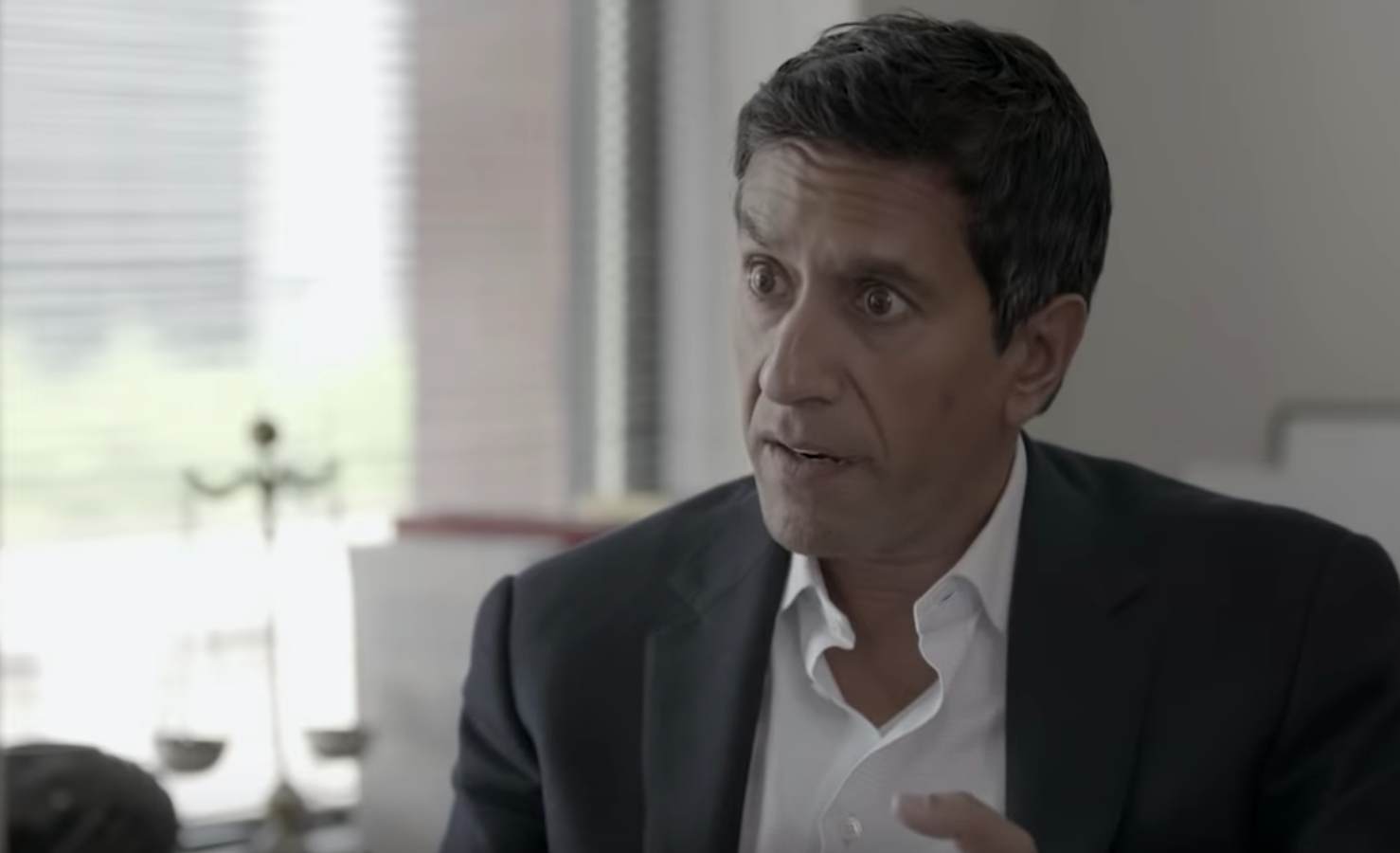When neurosurgeon Sanjay Gupta, M.D., first learned that life expectancy in America is at its lowest in a century, he wanted to find out why. The result of his investigation is an HBO documentary called “One Nation Under Stress,” where he uncovers the root cause of increased illnesses and deaths from substance abuse and suicide: our growing stress epidemic.
“The idea of being able to approach this as a medical mystery and find the underlying cause of what’s causing life expectancy to drop, that’s what really started it for us,” Gupta, CNN’s chief medical correspondent, tells Thrive Global about the impetus for the documentary.
The culture of stress is so pervasive that we’re all affected in our everyday lives. In our world of long hours, side hustles, and constantly being connected through technology, it’s easy to fall into the trap of feeling chronically stressed. But “based on a better understanding of what happens to the brain with stress,” Gupta says, he uses one key strategy in his own life to keep his stress levels at bay — a small, simple strategy we can all implement.
In short, it comes down to feeling a sense of control over your life.
Gupta spends 15 to 20 minutes each day doing something that helps him reduce stress, ensuring he has control over his own time. “As we see in the film, the prefrontal cortex of the brain that is responsible for judgement can wither away quickly in response to chronic stress,” he explains. “And loss of control and predictability, according to some of the scientists we talked to [in the documentary], ends up being a bigger predictor of the toxic sort of stress that can be so problematic.”
The good news is that the brain can also regrow neurons during periods when you’re less stressed.
“When I get that time to decrease my stress, to have control and [when] my brain is healing itself, it means that I’m going to make better decisions, have better judgement throughout my day,” he adds. According to Gupta, this includes making better food choices and being more empathetic to others.
“The 10 to 15 minutes that you spend doing whatever it takes to relieve yourself from stress, I think pays off in spades in that your brain actually heals and behaves better later on that day, [and] later on that week,” Gupta says.
This advice supports a key Thrive Microstep (a too-small-to-fail, science-backed behavior change you can implement right away): Take a short break at least once a day. Step away from your desk, even for just a few minutes, and do something that energizes you. It could be stretching, meditating, reading something for pleasure, or taking a short walk. You’ll return with renewed focus and purpose.
One of the other major takeaways from “One Nation Under Stress,” Gupta says, is the importance of community. “Having a true social fabric can be such a buffer against some of these terrible stresses that we’re talking about, and social media is not the sort of social fabric that we’re talking about.”
Gupta’s next project — a six-part series airing on CNN called “Chasing Life” — will focus on different countries that live happier, healthier, longer lives than we do in the United States in an attempt to better understand what they know what we don’t.
After that, Gupta will turn his attention to another root cause of our stress: our relationship with technology — specifically, how it is impacting younger generations. As the father of three almost-teenage daughters, he says that this is an issue that is very much top-of-mind for him (and most other parents) right now.
Teenagers are less likely to learn to drive or go to prom than those a generation ago, Gupta says, opting instead to stay at home. “In some ways they may be physically safer, but they’re more likely to be sitting at home in their rooms on a device, and the potential impending mental health toll that it’s going to take is something that we’ve never dealt with as a society. So I’m really worried about it,” he adds.
Follow us here and subscribe here for all the latest news on how you can keep Thriving.
Stay up to date or catch-up on all our podcasts with Arianna Huffington here.


